Winter Term begins January 6 and 7 for our 10 week online play-along sessions. We offer an Intermediate class on Tuesdays and/or Saturdays and an Advanced class on Wednesdays and/or Saturdays. The 90-minute sessions, for players of recorder and other early instruments, include playing a melange of renaissance, baroque, medieval and modern music with the ORB Trio in real time with performance advice, historical information and lively banter.
Winter Term begins January 6 and 7 for our 10 week online play-along sessions. We offer an Intermediate class on Tuesdays and/or Saturdays and an Advanced class on Wednesdays and/or Saturdays. The 90-minute sessions, for players of recorder and other early instruments, include playing a melange of renaissance, baroque, medieval and modern music with the ORB Trio in real time with performance advice, historical information and lively banter.
Johann Sebastian Bach's two-part inventions and three-part sinfonias provide recorder players and other non-keyboard instrumentalists) with a wonderful collection of pieces to play. Over these five weeks we'll work on three of the two-part inventions on our bass recorders. Part of our work will involve making decisions on how to deal with parts that go out of our range, learning how to make changes that retain the beauty of the line. We'll also exercise our skills on switching from bass clef to treble clef by playing both parts of the inventions. Along the way we'll continue to work on good bass technique.
For bass recorder players.
Payment: $25 per individual class, or $125 for all five. Please email tishberlin@sbcglobal.net with classes desired and I'll send you payment informationLed by Tish Berlin
French Baroque music can often seem like a foreign language – you've practiced Handel and Bach, and learned a few trill fingerings along the way, but maybe you've wondered about the suites by French composers and the art of ornamenting them. Boismortier, Hotteterre, Dieupart, and others who were composing and performing in French aristocratic circles in the 18th century offer a wealth of beautiful music for us to discover. We'll learn about and practice some of the French agréments - trills, the port de voix, battement, flattement, tour de chant, and tour de gosier - in context so they become second nature. We'll listen to recordings to hear the music that charmed Louis XIV and XV and their courts. We'll learn how to adorn movements from suites by Boismortier with beautiful ornaments! For alto recorder players.
Payment: $25 per individual class, or $125 for all five. Please email tishberlin@sbcglobal.net with classes desired and I'll send you payment information.
Paws and Tails: Music from the Glogauer Liederbuch
with Annette Bauer
Wednesdays, Feb 4, 11, 18, and 25; 5:45 - 7 PM, ET
Written in the 1480s, the Glogauer Liederbuch is a collection of music containing over 300 secular and sacred songs, as well as instrumental pieces. It is also the earliest surviving source written in part books (cantus, tenor, contratenor), and is an important source for mid to late 15th-century repertoire. The source contains a mix of Latin church music, German-texted songs, dances & quodlibets, and a number of textless chansons. We will focus primarily on pieces with animal references in their titles.
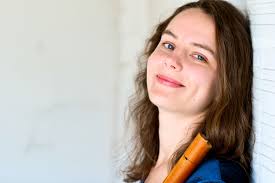
Cost: $100 for the 4-class series
How to register: Please contact annette.bauer@gmail.com for more information and to register.
Following on the heels of a beginning bass class and a 2nd level bass class through the American Recorder Society, Jody Miller will offer a three-part series for bass recorder players.
Wednesday, February 11, 7:00–8:30 pm Eastern Time
Wednesday, February 18, 7:00–8:30 pm Eastern Time
Wednesday, February 25, 7:00–8:30 pm Eastern Time
For the first week, we’ll focus on the bass recorder in Renaissance instrumental music—dances, canzonas, and more. There may be a few examples of vocal repertoire, as the two genres are closely related and stylistic choices can often transfer.
The second week will focus on the bass recorder as a basso continuo instrument in the music of the Baroque. We’ll cover some Baroque style, especially focusing on the role of the bass player in an ensemble.
The third week will conclude with examples of the bass recorder in contemporary music utilizing the ARS Music Library and other excerpts. I strongly recommend membership in the American Recorder Society so that participants have full access to the music library and related resources.
All class literature will be provided, but contact me in advance if you need advice about recorders or other equipment. It is expected that all participants have access to a metronome and a way to record yourself playing (all easily done with practically any smartphone).
This 3-part online series will be presented through the Zoom videoconferencing platform. Sessions are interactive and participants are invited to ask questions and there will be opportunities for immediate feedback. Participants will have access to audio play-along files and can review recordings of the class sessions to enhance their own practice.
Sessions will be held for three consecutive Wednesdays, February 11, 18, and 25, at 7:00 pm Eastern Time via Zoom. Sessions will run 90 minutes. Headphones and a good microphone for your computer are encouraged, but not required.
The fee for the 3-class series is $70, payable via PayPal, Venmo, CashApp, or check.
PayPal—click here to pay using PayPal
Venmo—@Jody-Miller-38
CashApp—$recorder96
If you would like to pay by check, please contact Jody directly for the mailing address.
Class size is limited to 25 participants. In the event not enough people sign up for the class to be viable, 100% of your money will be refunded.
Join us for a series of Consort Studio Workshops in central New Jersey, monthly sessions in ensemble playing for intermediate to advanced level recorder players to learn to play with one another and other instruments under a skilled conductor, with professional accompaniment.
These events will be led by conductor, recorder player, and harpsichordist, Steven Russell (see below). It is an opportunity to play a variety of Baroque literature for small ensembles, through rehearsal, instruction, and demonstration, in a supportive environment, with a focus on ensemble playing, and end with the option to play the lead alto part with a professional ensemble. We will have opportunities to warm up on Renaissance music with SATB recorders, so bring all sizes. Register early to receive the music well in advance. Auditors welcome to attend. Sessions culminate in a performance.
Dates: One Saturday of the month, 1:00 – 5:00 P.M. w/ a 15-min. break
Nov. 8, 2025 Open for General Registration. A Taste of Things to Come
Jan. 10, 2026 Feb. 28, 2026 March 14, 2026 April 25, 2026
May 9, 2026 Workshop-Rehearsal June 13 Oct. 10 Nov. 14, 2026
Location: Reformed Church of Highland Park, 19-21 South Second Avenue, Highland Park, NJ. There is plenty of parking at the location, which is a 30-minute walk or 5-minute taxi ride from the New Brunswick NJT train station.
To register, Visit https://hprecorder.org/events/2026-consort-studio/. For more information contact recorderdonna@gmail.com
The Next Level Recorder Retreat 2026 will take place at The Bishop’s Ranch, an Episcopal Church retreat center just outside of Healdsburg California in the beautiful rolling hills of Sonoma County, part of California’s wine country. Dates are March 1-6, 2026. Participants should arrive in time for dinner on Sunday and leave at 11 am on Friday before lunch. Our first session is Sunday evening, and our last sessions are Friday morning, ending at 11 am. Faculty are Miyo Aoki, Tish Berlin, and Frances Blaker.
Spring Reset
with Anne Timberlake
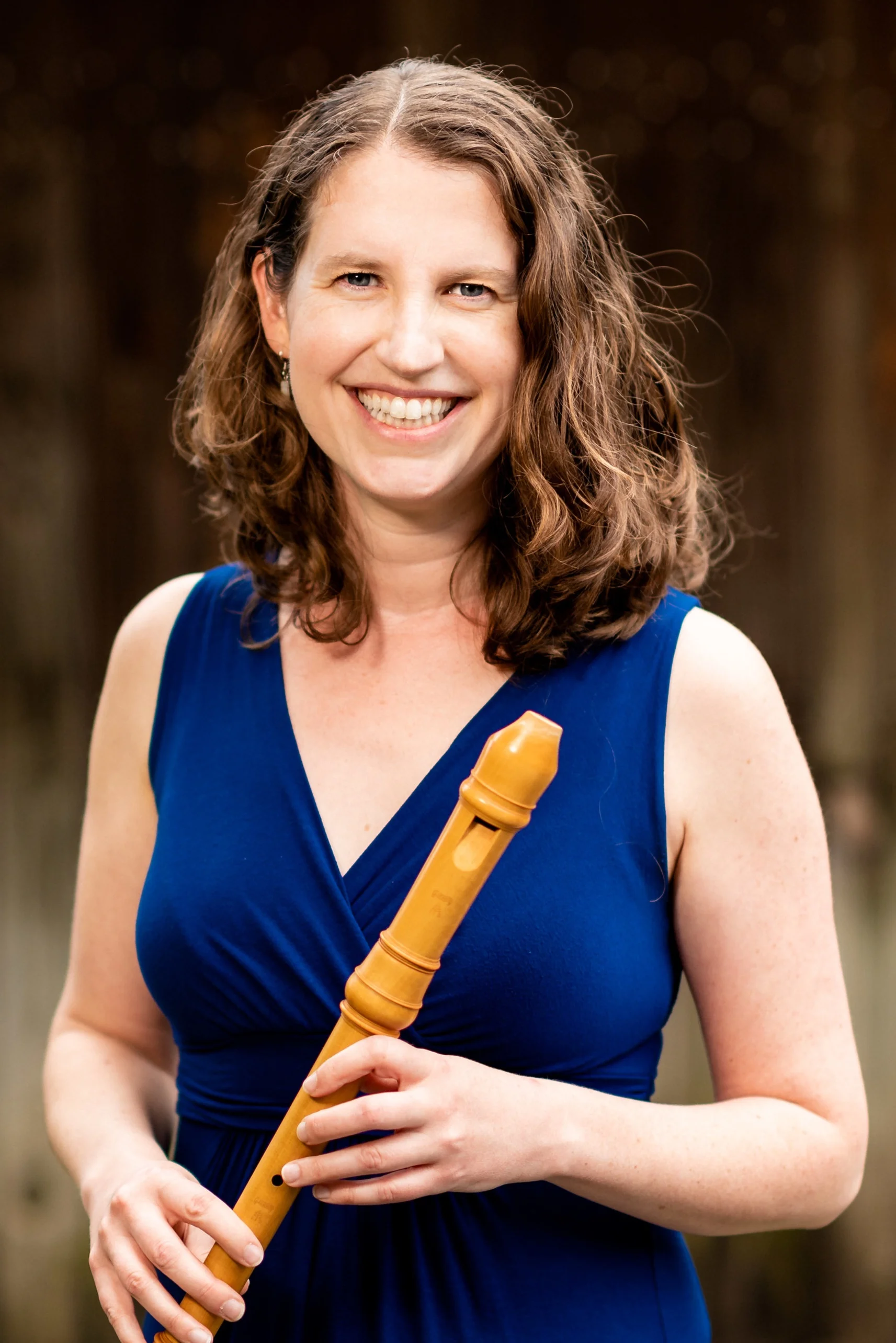
Are you ready for a fresh start for your recorder playing? Does your music-making feel too tense or effortful? Would you like to play the recorder with more ease and joy? In this live, four-week small group short course, we’ll review core principles of recorder technique, identify unhelpful habits, and work through an exercise program designed to help you build or rebuild the foundation for great playing!
Cost: $99
To register, visit my website
This course is appropriate for all levels.
It’s a tale as old as time - 2 lovers meet in secret in the dark of night, bathed in starlight….only to be interrupted by an astrologer who insists that they must consult with the stars before embarking upon their tryst. Is the moon in the sign of the Bull? In that case - a path to marriage may be advised! But if the moon is in Cancer, beware…it is a time for fighting and arguing!
This March, Alkemie will premiere a new program, curated by Tracy and Ellie, that explores German medieval music inspired by the Zodiac. Along with our dear friend and early-music luminary Shira Kammen, we will explore music from Oswald von Wolkenstein, Hugo de Montfort, the Glogauer Liederbuch, and Carmina Burana that grapples with the timeless question - are we in charge of our own fates, or do the stars control our destinies?
Join Alkemie to find out what activities might be safe for you to engage in on March 6 (when the moon will be in Libra). One German 15th-century treatise advises that this is a good time to travel from place to place, and especially to travel westward - we hope that your travels take you to the Jalopy Theatre.
It’s a tale as old as time - 2 lovers meet in secret in the dark of night, bathed in starlight….only to be interrupted by an astrologer who insists that they must consult with the stars before embarking upon their tryst. Is the moon in the sign of the Bull? In that case - a path to marriage may be advised! But if the moon is in Cancer, beware…it is a time for fighting and arguing!
This March, Alkemie will premiere a new program, curated by Tracy and Ellie, that explores German medieval music inspired by the Zodiac. Along with our dear friend and early-music luminary Shira Kammen, we will explore music from Oswald von Wolkenstein, Hugo de Montfort, the Glogauer Liederbuch, and Carmina Burana that grapples with the timeless question - are we in charge of our own fates, or do the stars control our destinies?
Join Alkemie to find out what activities might be safe for you to engage in on March 6 (when the moon will be in Libra). One German 15th-century treatise advises that this is a good time to travel from place to place, and especially to travel westward - we hope that your travels take you to the Rotunda at the University of Virginia in Charlottesville (on March 8).
Spring Reset
with Anne Timberlake

Are you ready for a fresh start for your recorder playing? Does your music-making feel too tense or effortful? Would you like to play the recorder with more ease and joy? In this live, four-week small group short course, we’ll review core principles of recorder technique, identify unhelpful habits, and work through an exercise program designed to help you build or rebuild the foundation for great playing!
Cost: $99
To register, visit my website
This course is appropriate for all levels.
The workshop will explore tunes from our “Ukrainian Tunes for Two”. This captivating collection of 35 traditional Ukrainian tunes includes marches, patriotic songs, polkas, waltzes, etc. These melodies will make you cry, and make you dance.
The dates and clinicians for our meetings this year will be:
September 12, 2025 - TBA
November 21, 2025 - Joan Kimball
January 16, 2026 - Gwyn Roberts
March 13, 2026 - Bob Wiemken
May 15, 2026 - TBA
Music, when provided by the clinician, will be available digitally before the meetings. If anyone requires or desires a print copy for the meeting, please let me know. I'm more than happy to make as many physical copies as needed, but don't want to waste paper on unneeded copies.
Our meetings will be held from 7:30-9:30 pm at:
New Ark UCC Church
300 East Main Street
Newark, DE 19711
The fee for our meetings will be $15 per meeting or $60 for an annual membership (covers all 5 meetings). Fees help support the chapter by providing honorariums to our guest clinicians as well as an honorarium for New Ark UCC for allowing us to use the space.
You can bring payment with you to the first meeting or send a check made to "Brandywine ARS" to our treasurer, Fred Litcofsky. Fred can be reached fredlitcofsky@gmail or 19 Savoy Rd., Newark, DE 19702
As always, guests are free on their first visit, so please feel free to invite a friend (or 2 or 3)!
Join us for a series of Consort Studio Workshops in central New Jersey, monthly sessions in ensemble playing for intermediate to advanced level recorder players to learn to play with one another and other instruments under a skilled conductor, with professional accompaniment.
These events will be led by conductor, recorder player, and harpsichordist, Steven Russell (see below). It is an opportunity to play a variety of Baroque literature for small ensembles, through rehearsal, instruction, and demonstration, in a supportive environment, with a focus on ensemble playing, and end with the option to play the lead alto part with a professional ensemble. We will have opportunities to warm up on Renaissance music with SATB recorders, so bring all sizes. Register early to receive the music well in advance. Auditors welcome to attend. Sessions culminate in a performance.
Dates: One Saturday of the month, 1:00 – 5:00 P.M. w/ a 15-min. break
Nov. 8, 2025 Open for General Registration. A Taste of Things to Come
Jan. 10, 2026 Feb. 28, 2026 March 14, 2026 April 25, 2026
May 9, 2026 Workshop-Rehearsal June 13 Oct. 10 Nov. 14, 2026
Location: Reformed Church of Highland Park, 19-21 South Second Avenue, Highland Park, NJ. There is plenty of parking at the location, which is a 30-minute walk or 5-minute taxi ride from the New Brunswick NJT train station.
To register, Visit https://hprecorder.org/events/2026-consort-studio/. For more information contact recorderdonna@gmail.com
Bring any size of soprano, alto, tenor, or bass recorder that you have. You will have a chance to explore more than one part of each piece. Both plastic and wooden instruments are welcome. Pitch is A=440.
Please bring a music stand. We recommend that you bring a stand light to supplement the ceiling light.
More info: https://www.nyrg.org/
---
The Church of Saint Mary the Virgin at 145 West 46th Street, between Sixth and Seventh Avenues in Manhattan. Meetings are held in St. Joseph’s Hall, a side chapel of St. Mary's. Located in a brick building to the left of the main church, the entranceway is distinguished by the street number 145 displayed on the door.
1:30-3:30 PM. Doors open at 1PM.
---
Meeting Fees:
$20 per meeting for members
$30 per meeting for non-members
-----
FULL SEASON PREPAYMENT OPTION: $180. Includes annual membership dues and meeting fees for the entire 2025-26 season.
-----
Send payment using Zelle to NYRG treasurer Judith Wink at jwink@nyc.rr.com. Please put your email address in the Notes field. Alternatively, send checks to New York Recorder Guild, 145 West 93rd Street, Apt. 2, New York, NY 10025.
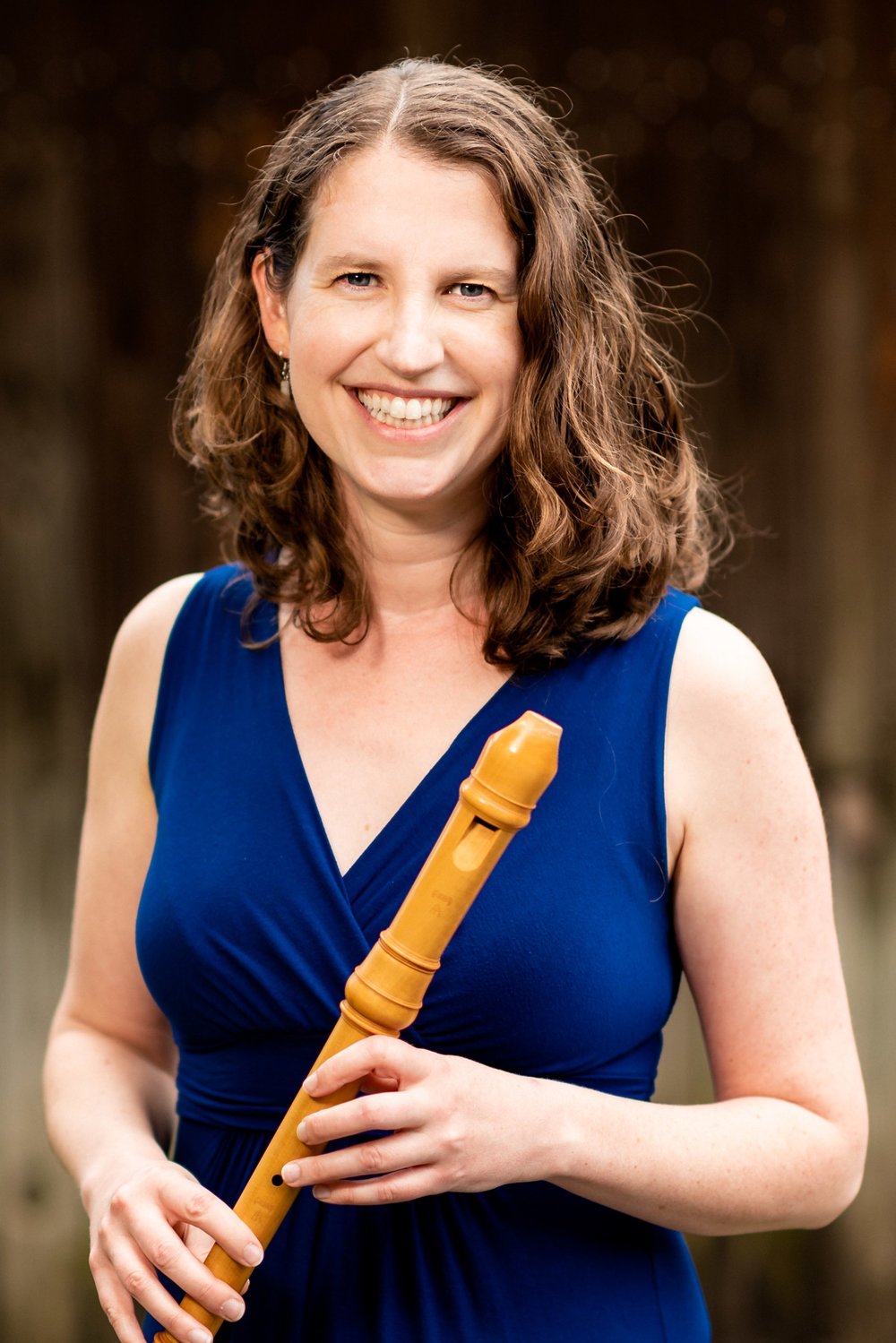 High Times: The Recorder's Upper Register
High Times: The Recorder's Upper RegisterDo you aim for a beautiful high note only to have it break or squawk? Are you avoiding specific pieces because you're nervous about the tone and consistency of your upper register? This workshop will demystify the highest (and most particular!) notes of the recorder, breaking down what they need, why they need it, and how to give it to them!
Designed for intermediate players but open to anyone looking to get more comfortable with their uppermost notes.
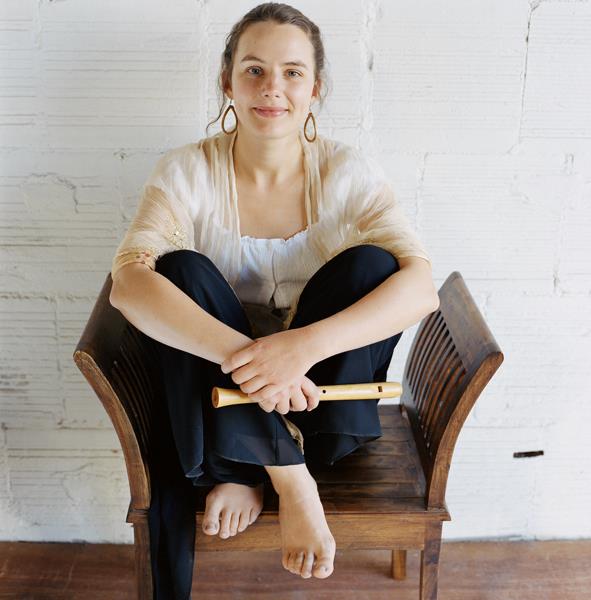 Medieval Mondays runs from February to May in four sessions. Each class will focus on a particular medieval topic, composer, or musical source. The sessions include a brief overview of the composer and information about the music’s historical context then a selection of music to discover and play. Scores will be available for registered participants a week ahead of each class. Medieval Mondays will take place on the following dates, always from 12:30-2pm Eastern:
Medieval Mondays runs from February to May in four sessions. Each class will focus on a particular medieval topic, composer, or musical source. The sessions include a brief overview of the composer and information about the music’s historical context then a selection of music to discover and play. Scores will be available for registered participants a week ahead of each class. Medieval Mondays will take place on the following dates, always from 12:30-2pm Eastern:
- Feb 9: Chansonnier Cordiforme - 15th Century Songs of Love
- Mar 16: O Fortuna! Songs from the Carmina Burana
- Apr 13: “Eye Music” - Music Written in Extraordinary Notation
- May 4: Composer’s Portrait: Gilles Binchois - A Musical Miniaturist Please note: If you miss a session, each Zoom meeting will be recorded and will stay available and on demand until one full month after the final class
Spring Reset
with Anne Timberlake

Are you ready for a fresh start for your recorder playing? Does your music-making feel too tense or effortful? Would you like to play the recorder with more ease and joy? In this live, four-week small group short course, we’ll review core principles of recorder technique, identify unhelpful habits, and work through an exercise program designed to help you build or rebuild the foundation for great playing!
Cost: $99
To register, visit my website
This course is appropriate for all levels.
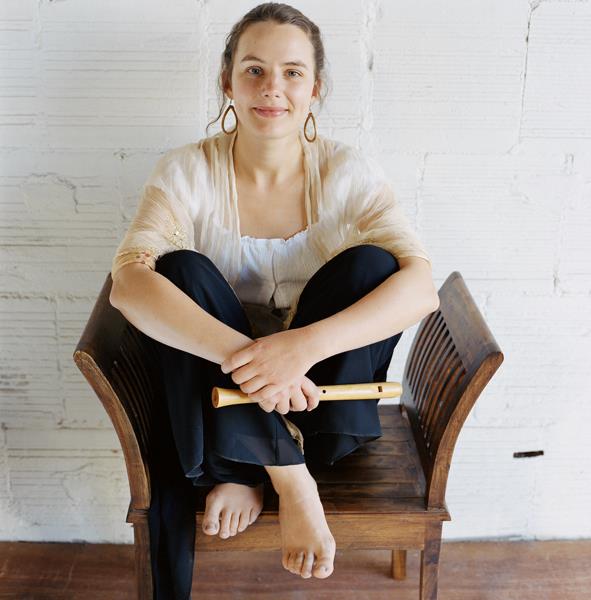 Happy Birthday, Johann Sebastian Bach!
Happy Birthday, Johann Sebastian Bach!Considered by many to be one of the greatest composers in history, Johann Sebastian Bach’s birthday is generally celebrated on March 21. Born in 1685, JS Bach had a stunning output of vocal and instrumental music throughout his lifetime, working, among other locations, at churches in Weimar, Arnstadt, and Leipzig. In our March 21st playing meeting, we will explore some of his music, from SATB 4-part vocal chorals, to the triple canon for 6 voices visible in one of his famous portraits, to instrumental settings of music contained in the notebook for Anna Magdalena Bach, all in recorder arrangements. While much of Bach’s music is well-known for its sublime complexity and often also technical difficulty, I will make sure that these music selections will include parts accessible for a wide range of playing levels.
Exploring music by the influential 14th-century French poet and composer Guillaume de Machaut (1300-1377). Guillaume de Machaut was a French composer and poet who was the central figure of the ars nova style in late medieval music. He was regarded as the most significant French composer and poet of the 14th century, and he is often seen as the century’s leading European composer. His life and death dates are even used in modern musicology to separate the ars nova from the subsequent ars subtilior style. An unprecedented amount of music survives for Machaut compared to his contemporaries, partially because he was personally involved in the creation of the beautifully crafted manuscripts that preserve his creative output. As a poet-composer, he also embodies the culmination of the tradition stretching back to the traditions of the troubadours and trouvères of earlier centuries.
All are welcome! SATB Recorders, A=440hz
Spring Reset
with Anne Timberlake

Are you ready for a fresh start for your recorder playing? Does your music-making feel too tense or effortful? Would you like to play the recorder with more ease and joy? In this live, four-week small group short course, we’ll review core principles of recorder technique, identify unhelpful habits, and work through an exercise program designed to help you build or rebuild the foundation for great playing!
Cost: $99
To register, visit my website
This course is appropriate for all levels.






